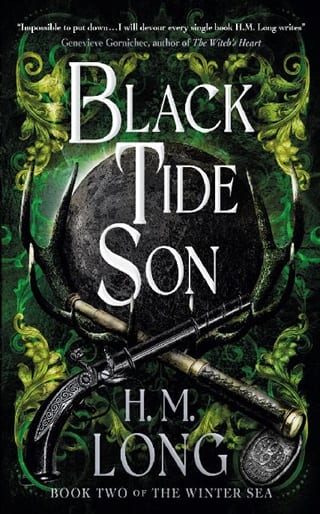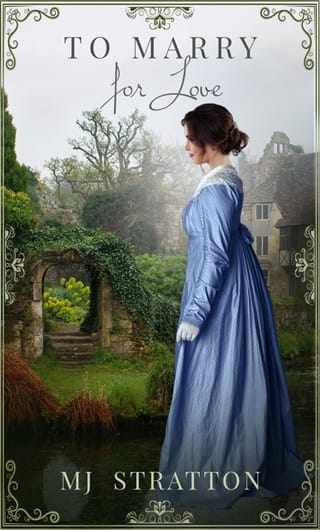Eight Aeadine, the Middenwold
EIGHT
Aeadine, the Middenwold
Twenty Years Ago
SAMUEL
T he forest was cold, and frosted leaves crunched beneath my feet. Snow hid in the hollows between the trees, bright patches against the patterns of grey and black and the ripple of lanternlight. Branches rattled above our heads with a dry, brittle sound.
There was no moon.
Ahead and behind us, the long line of strangers stretched, and, as we walked, they sang a familiar song, tainted by a haunting melody and their own, circular repetitions.
" When twilight is fading I pensively rove, or at the bright noontide in solitude wander, amid the dark shades of the lonely ash grove… "
My mother's hand tightened on mine and, on her other side, Benedict whispered, "Mama, where are we going?"
"Hush," was her only reply.
"We are going to the shrine," I said, because that unspoken sense of mine told me so.
The lanternlight caught my mother's smile, as gentle and fond as it had ever been. "Hush," she said again, but softer. Kinder.
The shrine was a circular little church, deep in the wold and long abandoned. It was not the church we had come for though, so the disrepair mattered little.
We came for the hollow tree that grew inside the ruins, that had punched through its rotten beams and into the free air.
"That is the ghisting tree," I whispered—again, a Knowing . There was only one such tree in our forest, lonely and misplaced, planted in some way I could not fathom.
My mother squeezed my hand. This time, she did not have to tell me to be quiet. The mannerisms of the strangers around us spoke louder than words. They spread into a circle with the three of us at the center, the shrine to one side, as their singing meandered off into a chanting, wordless harmony. They watched us from behind veils and beneath hoods, and every so often I caught a wolfish smile, or an expression of ecstatic bliss, or a distant glaze I recognized from my mother's own face on nights when I could not sleep and snuck into her room for comfort. One woman kept swaying, her movements becoming more insistent and uncontrolled, and her cloak parted to reveal naked skin beneath.
I looked away, as I was supposed to, and stared at my feet. My heart hammered, and the chanting made my skin crawl, prying into every corner of my mind and pushing out all else—leaving only the song and my growing fear.
The visions began. I saw myself sick and in bed, wracked with fever. Yet somehow I was also somewhere else, screaming and alone in a world of dark water. The Other.
I saw Benedict, but gangly, almost a man. He beat someone I could not see, blood between his teeth as he laughed raggedly. Joyfully.
Then he was a boy again, the vision more immediate. He looked at me across a room, tears streaming down his face, his body covered in lashes. But I could not go to him. I could not help him, because I was still in the Dark Water.
I saw my mother put a cup in my hands.
I blinked. There was a cup in my hands, and it was full of milk. The worlds hazed together—lapping water, shadowed woods, singing devotees of a strange ghisting.
"Drink, my love," my mother said and gave another cup to Ben. I saw the look of vacant hope in her eyes, the overflowing pride, and a love so pervasive it looked like madness.
I knew, deep in my being, that if I drank, the visions I had seen would come to pass. I knew that the second cup, the one in Benedict's hands, held something different. It would make his eyes glassy and pull his soul from his bones. Then the pain would come.
I should have stopped it. Should have tried.
But I drank, as did Ben. And when the cup was empty and the soured, wrong taste of the milk was on my tongue, I saw the ghisting himself manifest.
He was hidden in the hollow of his tree like a corpse in a coffin, with his arms crossed over his chest and an overlarge crown fallen around his throat like a noose. He did not leave the tree, did not move.
But his glow filled the clearing. And he stared directly at me.
 Fullepub
Fullepub 



